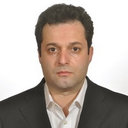Creatine Revealed Anticonvulsant Properties on Chemically and Electrically Induced Seizures in Mice.
Keywords
Coimriú
Creatine exerts beneficial effects on a variety of pathologies in which energy metabolism and oxidative stress play an etiological role. Creatine supplements have shown beneficial effects on neurological disorders including Parkinson׳s disease, Huntington›s disease, amyotrophic lateral sclerosis, as well as Alzheimer›s disease and stroke. However, the potential benefits of creatine for patients with convulsive disorders remain poorly defined. While some authors did not suggest any anti- or pro-convulsant roles for creatine treatment, others suggest that creatine may be an anticonvulsant agent. In this study, we investigated the effects of creatine on seizures in mice. Three models were used to explore the role of creatine on seizures in mice including intravenous pentylenetetrazole (PTZ), intraperitoneal PTZ, and electroshock models. Acute creatine treatment (10, 20, 40 and 80 mg/Kg) significantly increased the clonic seizure threshold in the intravenous PTZ model. Sub-chronic administration of creatine (10 and 20 mg/Kg) revealed a significant anticonvulsant effect in intravenous PTZ model. Acute creatine administration (10, 20 and 40 mg/Kg) significantly decreased the frequency of clonic seizures in the intraperitoneal PTZ model. Besides, acute creatine (40 and 80 mg/Kg) decreased the incidence of tonic seizures after electroshock. In conclusion, creatine exerts anticonvulsant effects in three seizure models; therefore, it may act as a potential drug to help patients with convulsions. However, further investigations should be done to clarify these results more.


